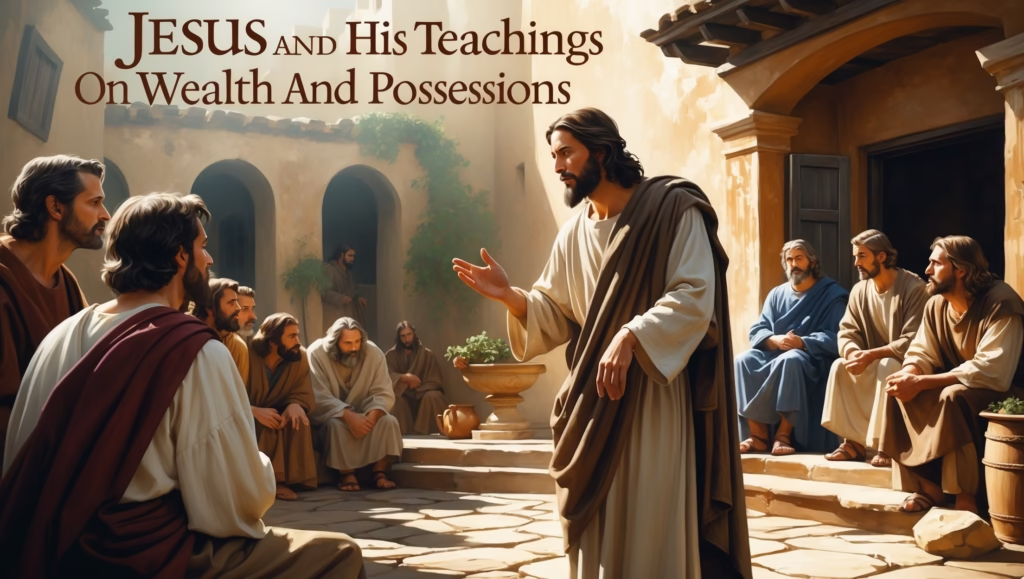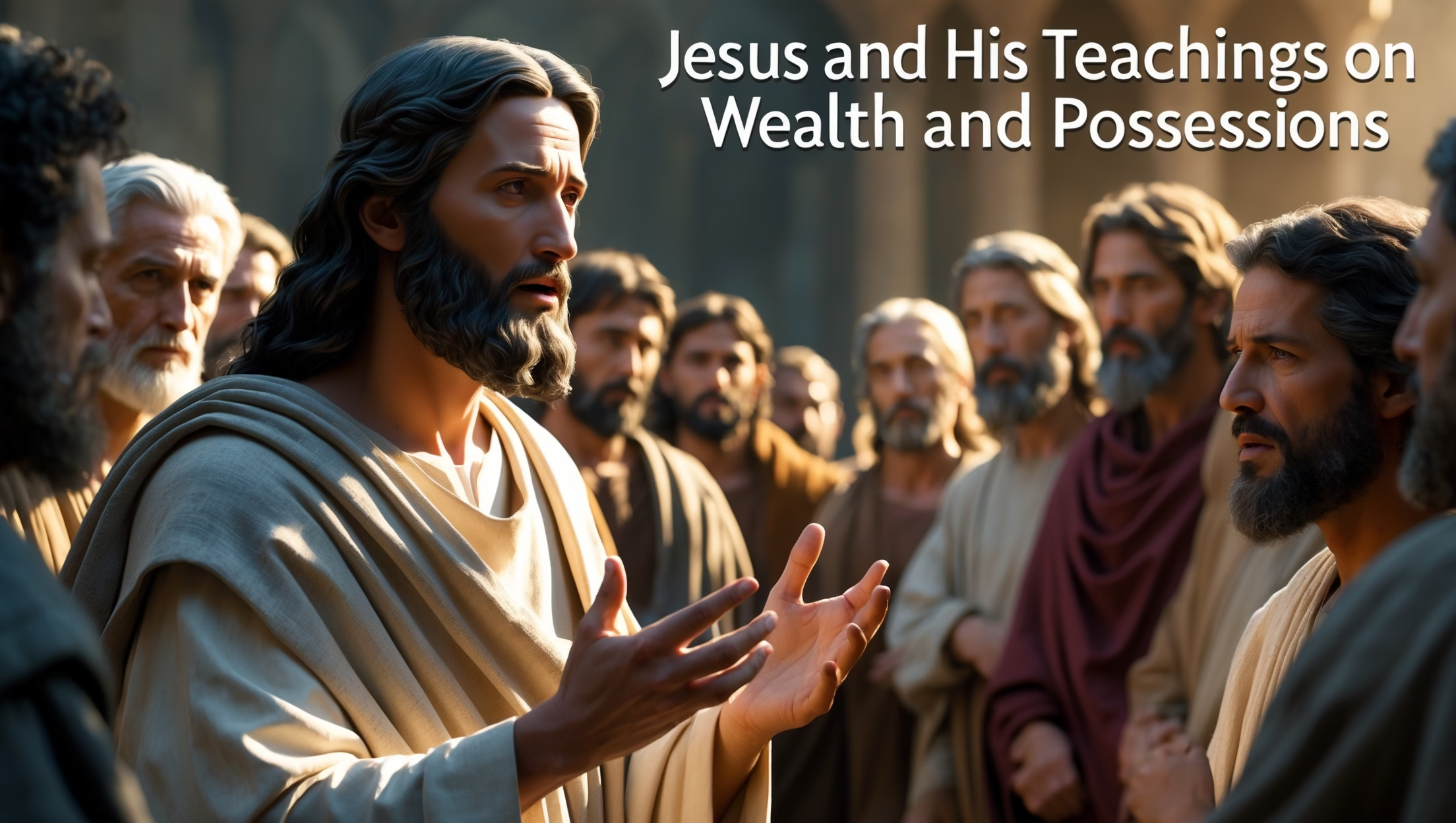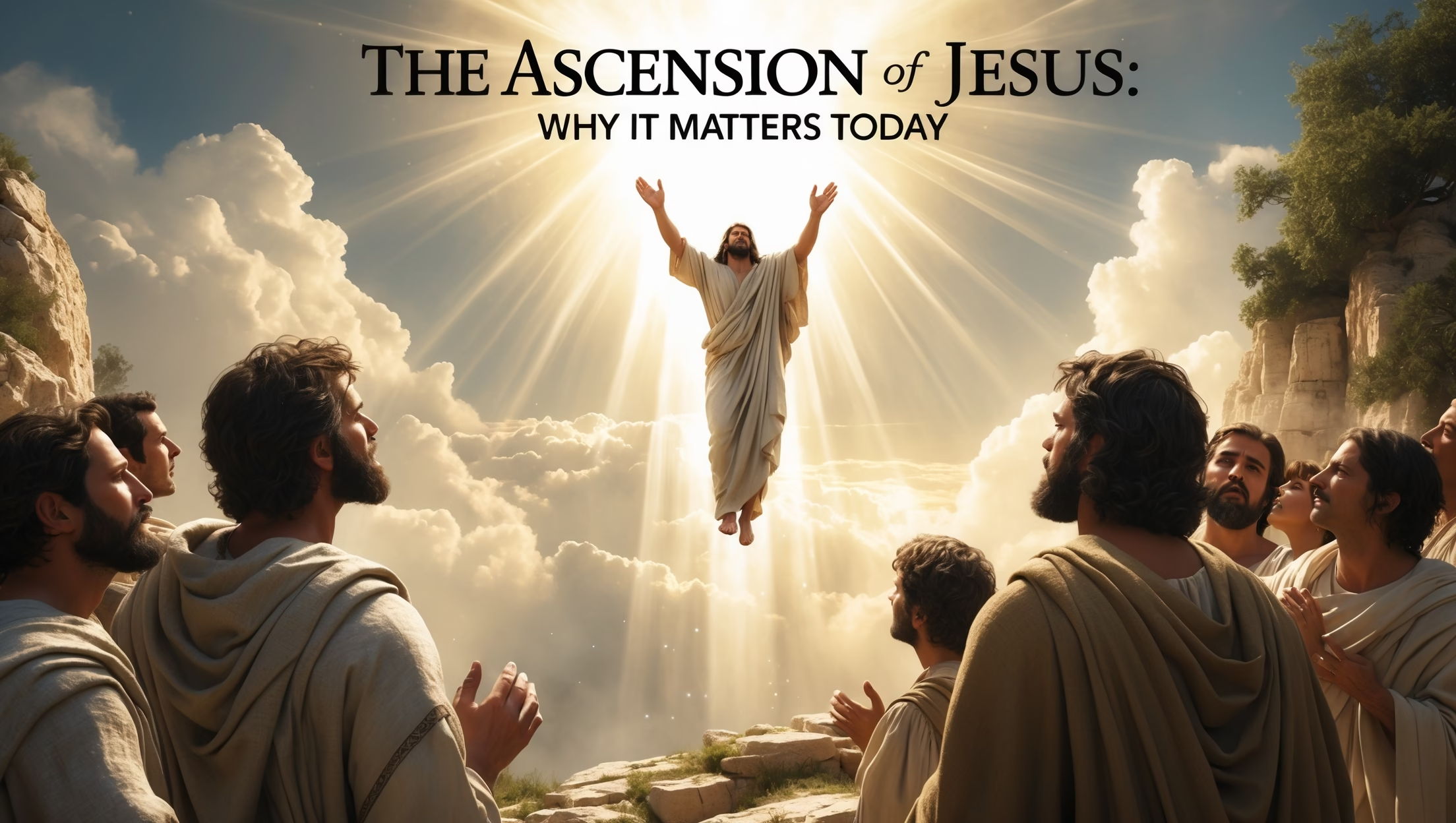Introduction
Wealth and possessions have always been central aspects of human life, shaping societies, economies, and individual choices. Yet, when it comes to the teachings of Jesus, wealth is not viewed simply as a neutral resource but as something that reflects the condition of the heart. Jesus consistently challenged worldly assumptions about money and possessions, warning against greed while highlighting the importance of generosity, stewardship, and eternal priorities. His words remain as relevant today as they were two thousand years ago, offering guidance for believers who navigate a world where financial success is often equated with personal value.

Teachings on Giving and Generosity
One of the clearest themes in Jesus’ teachings on wealth is generosity. Jesus did not condemn wealth in itself but emphasized how it should be used. In passages such as Luke 12:33, He instructed His followers to “sell your possessions and give to the poor,” making it clear that generosity demonstrates a heart aligned with God’s kingdom.
Jesus highlighted generosity through parables and real-life encounters. In the story of the Good Samaritan, for instance, compassion took the form of sacrificial giving—of time, energy, and resources. Likewise, in the temple courts, He praised the poor widow who gave two small coins, declaring her gift greater than that of the wealthy who contributed from their abundance (Mark 12:41–44).
Generosity, according to Jesus, is not about the amount given but the heart behind it. It reflects trust in God’s provision and a willingness to prioritize eternal treasures over earthly wealth. This principle challenges modern believers to rethink the purpose of money, not as a means to secure selfish gain, but as a tool for blessing others and advancing God’s mission.
Warnings About Materialism
Another central theme in Jesus on money is the danger of materialism. Jesus warned that wealth can easily become a spiritual snare, drawing people away from devotion to God. In Matthew 6:24, He stated plainly, “You cannot serve both God and money.” This stark contrast underscores the reality that wealth, when idolized, competes with God for ultimate allegiance.
The encounter with the rich young ruler (Mark 10:17–27) illustrates this vividly. The man desired eternal life but was unwilling to part with his great possessions when Jesus told him to sell everything and give to the poor. His sorrow revealed that his wealth was not merely something he owned but something that owned him. Jesus used this encounter to teach that it is difficult for the rich to enter the kingdom of God—not because wealth itself is evil, but because it can bind hearts to earthly security instead of heavenly trust.
Materialism, therefore, is not measured by how much one possesses but by how tightly one clings to possessions. Jesus constantly pointed His followers to live with open hands, recognizing that all resources belong to God. His teaching dismantles the illusion of self-sufficiency and reminds believers that true life does not consist in the abundance of possessions (Luke 12:15).
Parables on Wealth and Eternal Priorities
The parables of Jesus on wealth reveal profound truths about stewardship, priorities, and eternal accountability. In the Parable of the Rich Fool (Luke 12:16–21), a wealthy man hoards his goods, believing his life is secure, only to die that very night. Jesus concluded, “This is how it will be with whoever stores up things for themselves but is not rich toward God.” The lesson is striking: earthly wealth cannot guarantee lasting security, and only treasures invested in God’s kingdom endure.
Similarly, in the Parable of the Talents (Matthew 25:14–30), Jesus emphasized faithful stewardship. The servants who wisely invested their master’s resources were rewarded, while the one who buried his talent out of fear was condemned. This parable underscores that wealth and possessions are entrusted to believers for a purpose—not to be hoarded or wasted but used wisely for God’s glory.
These parables remind modern believers that possessions are temporary and that accountability before God is certain. They call for intentional living, where financial choices reflect eternal realities rather than short-term gain.
Stewardship for Today
While Jesus lived in a world without modern banking systems, investments, or global economies, His teachings remain applicable for today’s financial landscape. Stewardship means recognizing that everything a person owns—time, talents, and resources—ultimately belongs to God. Believers are called to manage these gifts responsibly, generously, and with eternal perspective.
Practical stewardship today may include wise budgeting, resisting unnecessary debt, and setting aside resources for giving. It means balancing present needs with eternal values, ensuring that money serves as a tool rather than a master. It also calls for awareness of global needs, prompting believers to consider how their resources can alleviate suffering, support missions, and spread the message of Christ.
In a consumer-driven world where success is often measured by accumulation, Jesus’ teachings remind us that generosity, simplicity, and trust in God’s provision are countercultural yet life-giving. Applying His words in daily financial decisions transforms wealth from a stumbling block into a means of worship and service.
Conclusion
Jesus’ teachings on wealth reveal a radically different view of money and possessions compared to the world’s standards. He called His followers to generosity, warned against the traps of materialism, and emphasized faithful stewardship with an eternal perspective. His parables and encounters make it clear that wealth is not condemned but must be handled in a way that honors God and serves others.
For today’s believers, the challenge remains: to resist the cultural pull of greed and accumulation and instead embrace the joy of giving, the discipline of stewardship, and the freedom of trusting God’s provision. In doing so, wealth becomes not an idol but a tool for advancing God’s kingdom and blessing others.










